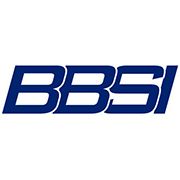Handbook Headaches: Avoiding Common Arizona Employer Handbook Mistakes.
While the number of employment laws Arizona employers are required to follow has steadily increased over the years, employment in Arizona remains largely policy based. This means that employment handbooks are critical to managing employee expectations, establishing performance and behavior standards, and protecting employers from legal liabilities. However, many handbooks fall short of their intended purpose due to common mistakes that can lead to confusion, legal issues, and a disengaged workforce. Employers should review their handbooks at least once a year to make sure policies remain current, comply with existing and new laws, and that policies are being consistently implemented as written. What are some of the common handbook mistakes Arizona employers make?
Non-compliance with Arizona’s Sick Leave Law.
Arizona’s Fair Wages and Healthy Families Act (the “Act”), which went into effect in 2017, requires employers to provide paid sick leave to employees. Under this law, all Arizona employers must offer paid sick leave to their Arizona employees. Despite the law being in place for several years, many handbooks still fail to clearly outline a policy that complies with the Act.
- Common Mistake: Employers either neglect to mention paid sick leave entirely or include language that doesn’t align with the Act. This oversight can lead to confusion among employees and potential legal penalties for non-compliance.
- Solution: Arizona employers need to ensure that their handbooks include a dedicated section for paid sick leave that aligns with the Act. Employers should review their policy to make sure it specifies how leave is accrued, under what circumstances and when sick leave may be used; and how employees should inform employers of their need for leave. Also, confirm that the oft omitted (yet required) anti-retaliation provision is included in the policy.
Vague Anti-Harassment and Anti-Discrimination Policies.
Workplace harassment and discrimination are serious issues, and employers must have clear policies in place to address and prevent them. However, many handbooks fail to provide sufficient detail on what constitutes harassment or discrimination and how complaints will be handled.
- Common Mistake: Employers often use vague language, such as stating that harassment or discrimination will not be tolerated without explaining what specific behaviors or actions fall under those categories. Many policies focus only on sexual harassment and ignore that harassment and discrimination come in many other forms (e.g., race and disability). Additionally, handbooks may lack clear reporting procedures or fail to assure employees that their complaints will be taken seriously and properly handled.
- Solution: Handbooks should include a comprehensive anti-harassment and anti-discrimination policy that defines key terms and provides examples of unacceptable behavior. The policy should also detail how employees can report incidents, specify who within the organization will handle complaints, and outline the investigation process. Employers should reinforce that retaliation for reporting is prohibited and ensure that all employees understand their rights and responsibilities. Employers should also clarify how to request a disability accommodation and explain the interactive process.
Ignoring Arizona's Marijuana Laws.
Arizona legalized medical marijuana in 2010 and recreational marijuana in 2020. These statutes create unique challenges for employers, particularly when it comes to drug testing and workplace safety policies.
- Common Mistake: Employers often fail to acknowledge the protections created by the Arizona Medical Marijuana Act, take an overly rigid stance that can be deemed discriminatory, or outright fail to maintain a drug testing policy when implementing testing in the workplace. For example, some handbooks include zero-tolerance drug policies that do not acknowledge that employees who are medical marijuana cardholders are entitled to certain protections regarding marijuana use outside of work hours.
- Solution: Employers should create clear and balanced drug and alcohol policies and outline the circumstances in which testing will be required. While businesses can still prohibit impairment and the use of marijuana at work, the policy should acknowledge that medical marijuana cardholders will not be discriminated against for use outside of work. Employers should also consider providing guidelines about what constitutes impairment on the job and requirements for documenting impairment prior to sending someone for testing.
Takeaway.
Space limitations resulted in other common mistakes such as overly restrictive social media policies, and ignoring other key federal, state and local requirements from not being included.
While creating and maintaining a compliant employee handbook in Arizona is no easy feat, even small employers should implement a comprehensive handbook to avoid legal headaches and help foster a positive work environment. A well-crafted handbook can serve as a valuable tool for fostering a positive work environment, promoting clear communication, and protecting the interests of both the organization and its employees.
Jodi R. Bohr is a shareholder with Tiffany & Bosco, P.A., and a contributor to Arizona Employment Law Letter. She practices employment and labor law, with an emphasis on counseling employers on HR matters, litigation, and workplace investigations. She may be reached at jrb@tblaw.com or 602-255-6082.





